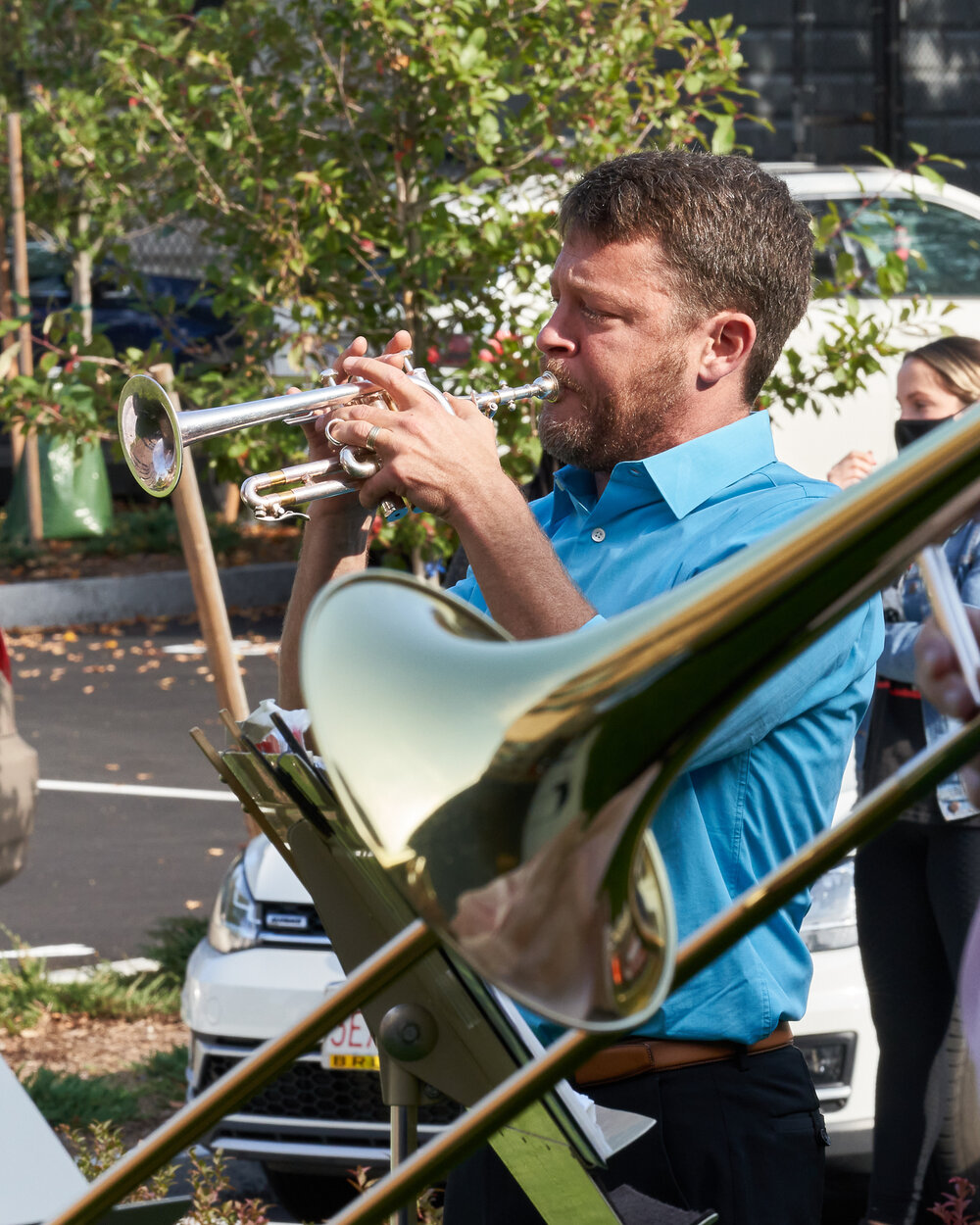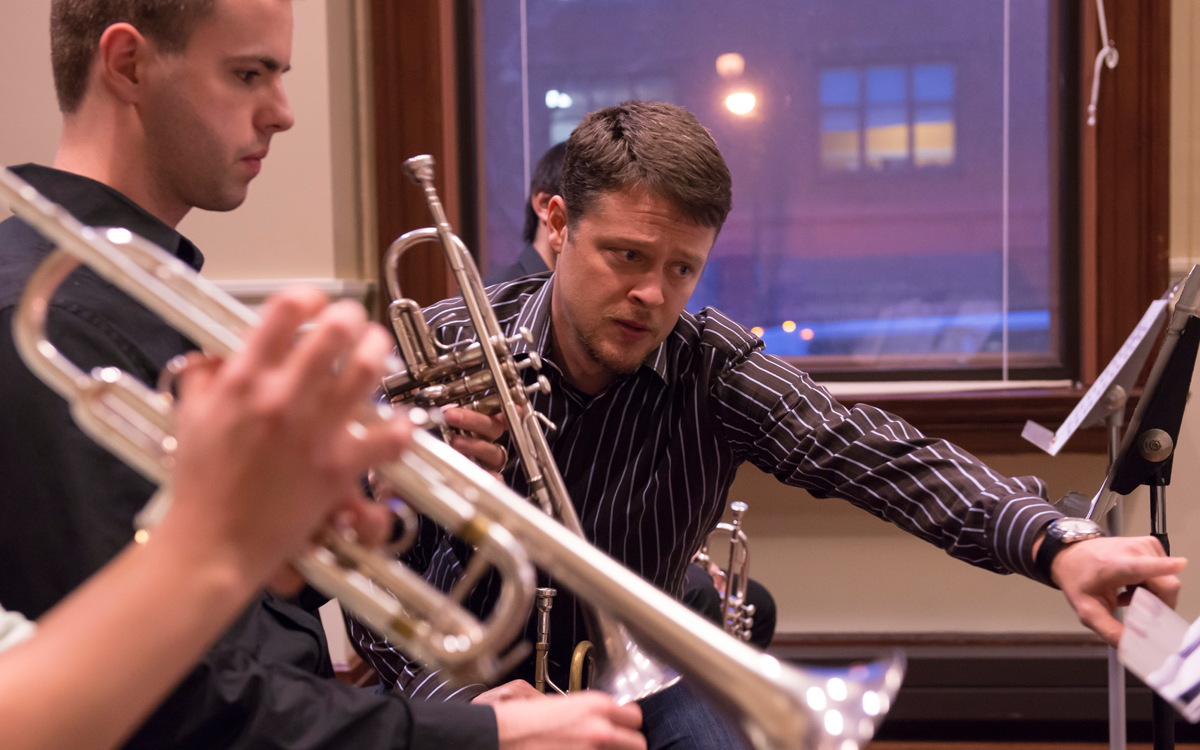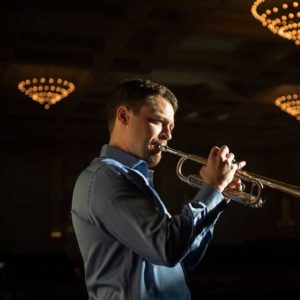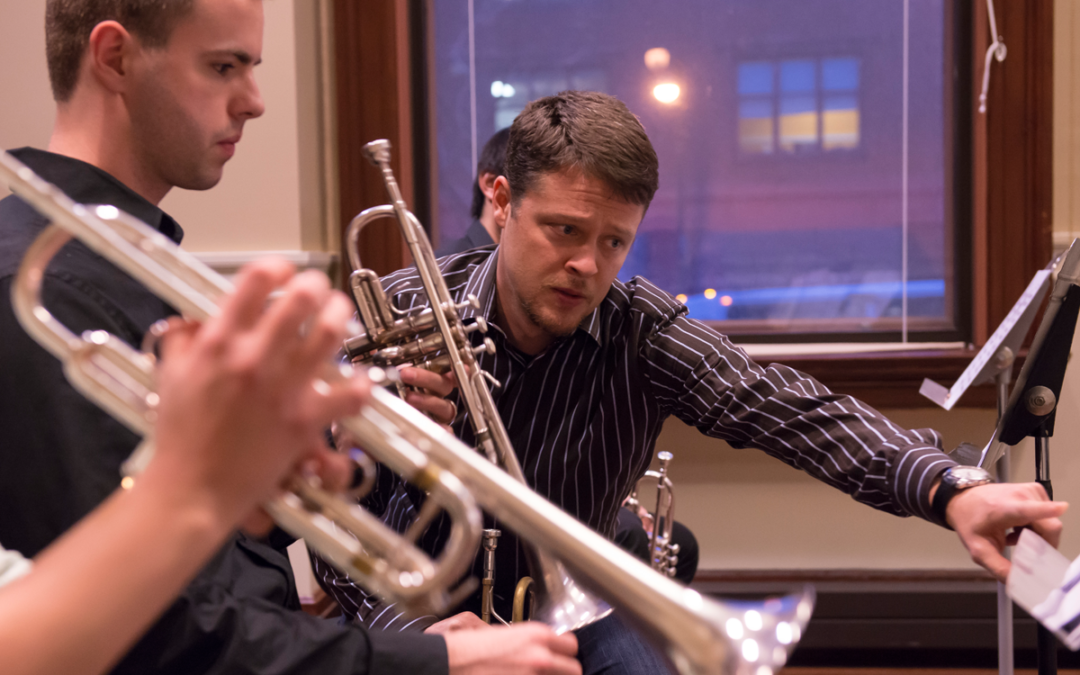
Clarke Routine


Written by Ben Wright
Starting with my first teacher, James Bursen, who was a VERY patient man, H.L. Clarke’s Technical Studies for the Cornet were have been a mainstay of my practice and remain so today.
Being comfortable playing in every key is important to becoming flexible. Of course, when I was 10 and Mr. Bursen told me to memorize the first five studies, my jaw dropped open. In reality, once you know the patterns, the fingerings for different keys can be learned when you are not playing the trumpet. For me that often meant when I was bored, sitting in church or class – I’d just sing through them in my head and hope that nobody saw me twiddling my fingers! By the time I hit conservatory, I had a pretty exhaustive routine with varied articulations and multiple tonguing patterns. I THOUGHT I had it all figured out – then Michael Sachs threw some more stuff at me. Between that early inspiration, my teachers’ input, and what I have learned since this simple book that has been around for over 100 years gets a lot done when practiced regularly.
Every student who takes lessons with me will eventually jump through the Clarke hoops. These simple exercises with the variations I demonstrate in this video, form a foundation for technique: dexterity, dynamics, flexibility, breath control, and more.
Related Articles
Related
How to Try & Buy The Perfect C Trumpet
I get a lot of questions from people asking what’s the best way to try trumpets. It is especially difficult when you’re younger to try trumpets effectively: and I would be a good example of that. I had a fairly bad c trumpet for all of my undergraduate years and into my first job. I was kind of left to my devices to choose my instrument and when you’re a little less consistent it’s harder to effectively choose an instrument that is right for you. That was why I ended up with a bit of a clunker!
Reframe and Redirect – A More Thoughtful Way to Practice
I had some fun writing this for Trumpet Magazine Online, a publication that has most of its following in Europe. I thank my students both in my T5 Mastercourse and the New England Conservatory and their hard work, which reminded me of these lessons – I often need to remind myself that they work for me too!.
How to Make Audition Recordings
What’s the biggest difference between a recorded audition and a live audition? You have the ABILITY (double edged sword here) to record it as many times as you want or have time to with a recorded audition. When it is live, you get one shot. Most of the recorded auditions now are being asked to be done straight-through, with no edits. This takes more planning and preparation than being able to record one selection at a time. It also gives us as the listeners a better overall idea of your playing.

